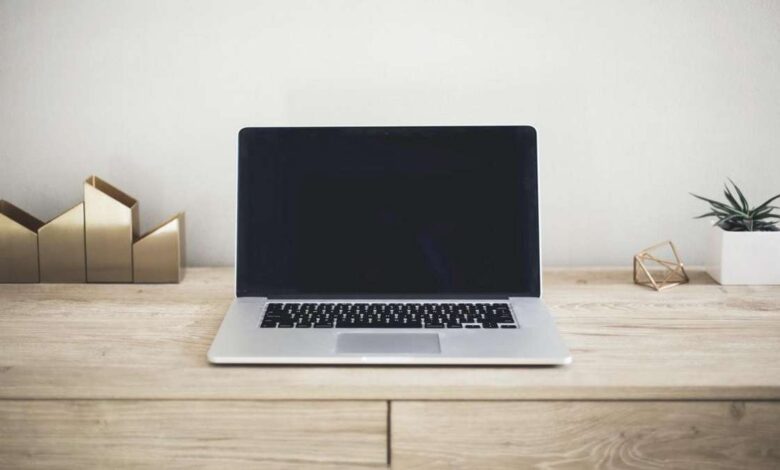6 Things You Need To Consider When Buying A New Laptop

A laptop is a great investment for your home, office, or travel system needs. But with so many different models and brands to choose from, it can be hard to know which one is the best fit for you. Here are six things to keep in mind when shopping for a new laptop, so you can easily your favorite PC online.
Features
What will you be using it for? If you plan to use your laptop for basic tasks such as checking email, browsing the web, and streaming video, almost any model with normal features will do. If you need to do more advanced tasks such as a photo or video editing, you’ll want to consider laptops that have certain features. Here are the most common useful features:
Memory
If you’re looking for a laptop that can support fast processing speeds and large files, memory is key. The most common types of RAM are DDR3, DDR4, LPDDR3, and LPDDR4. While the numbers may look similar or confusing, it’s important to know the distinctions between all four, so you can find the best laptop for your needs.
Processor
The processor is the heart of your computer, and it’s important to choose one that matches your needs. When buying a new laptop, there are two main types of processors to keep in mind:
Intel Pentium or Intel Core I3/I5/I7 (i3, i5, or i7)
AMD A4/A6/A8/A10
If you plan to use your laptop for demanding tasks such as photo and video editing, a powerful processor will help the computer run smoothly. Processor speed is measured in GHz, so it’s important to consider processors that have higher numbers (i.e. 3GHz or more).
Graphics
If you’re looking for a laptop to do some gaming or graphic design, you’ll want to consider one with a good graphics card. The most common types of graphics cards are NVIDIA GeForce and AMD Radeon.
Screen Size And Resolution
The size of your screen is important to consider if you want a laptop that’s easy to take with you on the go. A laptop typically comes in three sizes: 11 to 13 inches, 14 to 15 inches, and 17 inches or more. If you want a larger screen, be sure to factor that into your budget, as they can be more expensive.
Screen resolution is also something to keep in mind when shopping for a laptop. Higher-resolution screens (1920 x 1080 or higher) typically offer a crisper picture, and they will also require more processing power. The standard screen resolutions are 1366×768, 1440×900, 1680×1050 and 1920×1080.
Instances, where you’ll need a high screen resolution, are if you’re a graphic designer, video editor or if you’re into gaming.
Battery Life
One of the most important factors to consider when buying a laptop is its battery life. A laptop with a shorter battery file will require you to charge them more often, which can be a hassle if you’re on the go. On the other hand, a laptop with longer battery life gives you more freedom and doesn’t require as many charging stops. Notebooks with 4-cell batteries typically have the shortest battery life (up to five hours) while a laptop with 6-cell or higher batteries can last for eight hours or longer. The battery life of a laptop is affected by a number of things. Such as:
- Processor. The faster the processor, the more power it will require and the shorter the battery life will b
- Screen size. Larger screens require more power to run than smaller screens, which means they have shorter battery lives.
- Graphics. If you’re using your laptop for gaming or video editing, you’ll want to consider one with a graphics card that uses more power.
- Operating system. Windows 10 uses more battery life than older versions of Windows. macOS is known to have better battery life than the ones that use Windows.
- Wi-Fi and Bluetooth. The more features your laptop has, the more power it will require. Both Wi-Fi and Bluetooth use battery life when turned on.
Weight and Portability
Another important factor to consider is a laptop’s weight and portability. If you plan to take your laptop with you on the go, you’ll want one that’s lightweight and easy to carry. The ones that weigh more than 3 pounds may be too heavy to carry around, and 3 pounds is the standard weight. If you want a lightweight laptop, look for one with a plastic build, as they tend to be lighter than the ones that have an all-metal frame. The things that determine a laptop’s weight are:
The size and type of battery
A laptop with a larger battery tends to weigh more than those with smaller batteries. A laptop that uses 6-cell or higher batteries is heavier than those with 4-cell batteries.
The materials used to make the laptop
A laptop that has an all-metal frame weigh more than those with a plastic frame.
The number of ports and features
A laptop with more ports and features tends to weigh more than those without. For example, a laptop that has an HDMI port, card reader, and USB 3.0 will weigh more than one that doesn’t.
The type of processor
A laptop that has an ultra-low voltage or low voltage processor weighs less than those with a high-voltage, quad-core processor.
The graphics card
Some high-end graphics cards are very bulky, and they can add significant weight to your laptop, so keep this in mind if you plan on getting a high-end model.
Price
When buying a laptop, you should consider its price. You can get an affordable one for $300 or less, while the higher-end models can go upwards of $2,000. The price will depend on the specs and features you want in your laptop.
An expensive laptop will give you faster processing speeds and a better graphics card than an inexpensive, $300 laptop. However, if you don’t need its extra features and performance, it might be more practical to buy a cheaper one that does what you need it to do.
Aesthetics
The final thing to consider when buying a laptop is its appearance, as it plays a significant role in your buying decision. You can find a laptop with exterior designs that will fit any style and preference you have. The best-looking laptop is typically the most expensive, but there are also many affordable ones that look good. You just need to decide what’s important to you when it comes to aesthetics.

When buying a laptop, there are important factors you need to consider: the features, battery life, weight and portability, price, and appearance. By taking these factors into account, you can find the perfect laptop for your needs and budget.